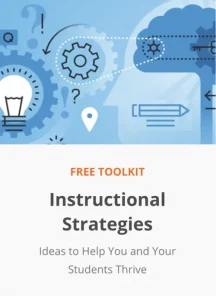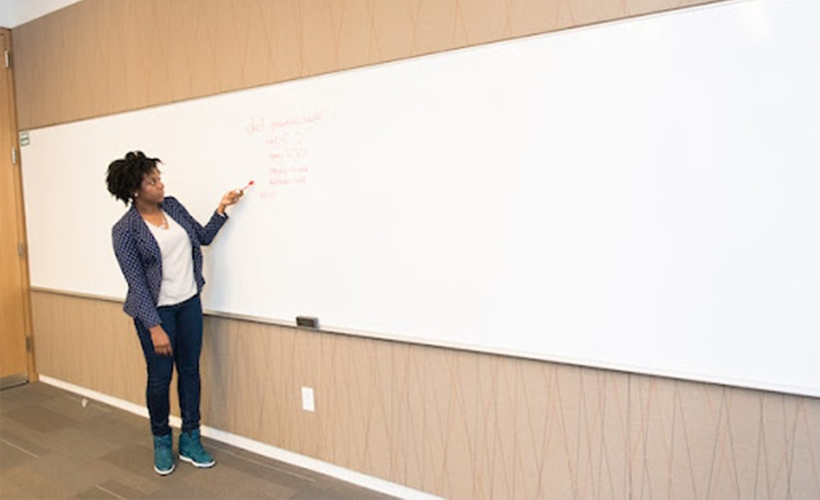The Critical Librarianship & Pedagogy Symposium (CLAPS) was held virtually from November 2–4, 2022. CLAPS “brings together the ongoing but parallel discourse surrounding critical pedagogy among academic librarians, critical pedagogy scholars, and teaching faculty.” What is critical pedagogy, and why is it important? CLAPS’s website states, “Critical pedagogy recognizes that education is shaped by outside political and economic forces, often to the detriment of politically and culturally marginalized students. Those who practice critical pedagogy teach students how to recognize and critique the oppressive power structures inherent in educational systems.” This framework moves away from the idea that libraries are neutral and that what we do is not political. In addition, this framework offers us a chance to acknowledge and reckon with the many systems that we are part of and that our students are part of as well. In this blog post, I speak with Jamillah Gabriel, the Critical Pedagogy Research Librarian at the Graduate School of Education at Harvard University, about her librarian role and how she engages with students and faculty.
Jamia: How do you incorporate critical information literacy philosophies in your instruction?
Jamillah: It’s important that I ground my CIL instruction in critical theory and critical pedagogy. That might mean using a Black feminist theoretical foundation or incorporating principles from engaged pedagogy toward an equitable and inclusive classroom. I’m also interested in information searching and access as an act of resistance, which includes carefully selecting terms that support critical consciousness when demonstrating searching, highlighting the importance of using BIPOC scholarship with strategies for finding such research, and encouraging a citational practice that acknowledges the contributions of marginalized scholars.
 Jamia: Can you give examples of instructional materials you create for the Harvard Graduate School of Education?
Jamia: Can you give examples of instructional materials you create for the Harvard Graduate School of Education?
Jamillah: I facilitate a graduate workshop on finding and using anti-racist, anti-deficit, BIPOC, and critical scholarship, and one of the exercises I give to students is to critically examine examples from articles to discern what kind of research is suitable. The purpose of this is to assist students in building skills toward recognizing research that might be divisive or heavily biased.
Jamia: Can you please discuss your most used instruction assessment tools?
Jamillah: In the past, I’ve been at libraries where we relied predominantly on satisfaction-based assessments in the form of surveys. In my current library, this option is not available to us, so we’re looking at using alternative forms of assessment via qualitative methods, such as focus groups and interviews. Other tools I’ve used are polls, which are a great tool for quick assessments, as well as student engagement and self-reflection activities that prompt students to consider what they’ve learned.
Conclusion:
Critical librarianship has helped me understand my positionality as an educator, and what that means to the students I engage with daily. Therefore, I believe using this framework should lead to a professional lifestyle of equity, diversity, and inclusion, which many libraries profess as their mission. As academic librarians, we should continue to find ways to support students in ways that they feel empowered. Attending CLAPS is one of the ways you can grow in the understanding of critical librarianship and pedagogy. They have some recordings and slides available if you weren’t able to attend the symposiums.
Below are some valuable resources that I hope you can use to start your journey or continue your journey. It is not an exhaustive list. There are books, LibGuides, webinars, and many resources about critical librarianship and pedagogy. The resources about this subject are helpful and informative.
Resources:
- CLAPS Program Schedule: This has some of the recordings and slides of the 2022 symposium
- THE Criticalness of LIS Incorporating Critical Theory, Pedagogy, and Action in LIS Research, Teaching, and Practice by Jamillah Gabriel
- The Practice and Promise of Critical Information Literacy: Academic Librarians’ Involvement in Critical Library Instruction by Eamon C. Tewell
- Putting Critical Information Literacy into Context: How and Why Librarians Adopt Critical Practices in Their Teaching by Eamon Tewell
- Neutrality Is Polite Oppression: How Critical Librarianship and Pedagogy Principles Counter Neutral Narratives and Benefit the Profession by Jennifer Ferretti
Biography:
 Jamillah R. Gabriel is the Critical Pedagogy Research Librarian in the Graduate School of Education at Harvard University and a fifth-year Ph.D. student in the School of Information Sciences at the University of Illinois Urbana–Champaign. Her professional experience includes 22 years as a librarian and library paraprofessional in public and academic libraries. Jamillah’s research focuses on issues at the nexus of information and race via a critical theorist lens and interrogates how hegemonic information systems and cultural heritage institutions impact Black people and communities. She is also the founder of Call Number, a book subscription box specializing in Black literature and authors, and co-host of LibVoices, a podcast that interviews BIPOC librarians and information professionals about their experiences in LIS.
Jamillah R. Gabriel is the Critical Pedagogy Research Librarian in the Graduate School of Education at Harvard University and a fifth-year Ph.D. student in the School of Information Sciences at the University of Illinois Urbana–Champaign. Her professional experience includes 22 years as a librarian and library paraprofessional in public and academic libraries. Jamillah’s research focuses on issues at the nexus of information and race via a critical theorist lens and interrogates how hegemonic information systems and cultural heritage institutions impact Black people and communities. She is also the founder of Call Number, a book subscription box specializing in Black literature and authors, and co-host of LibVoices, a podcast that interviews BIPOC librarians and information professionals about their experiences in LIS.
See also:


